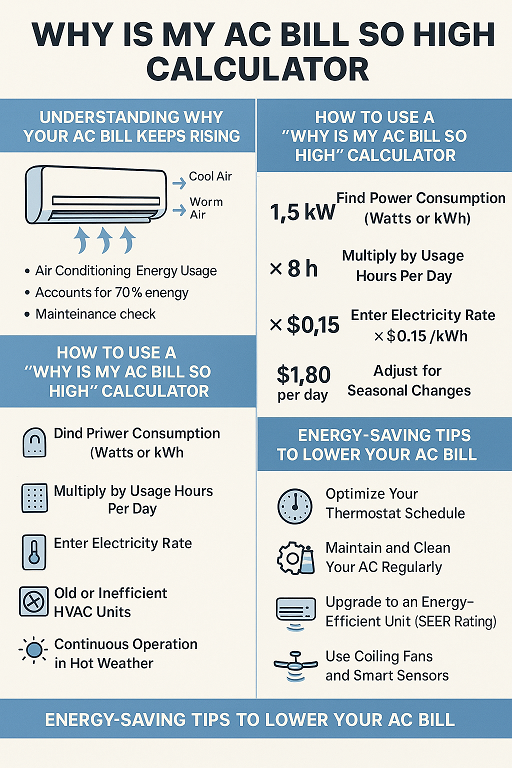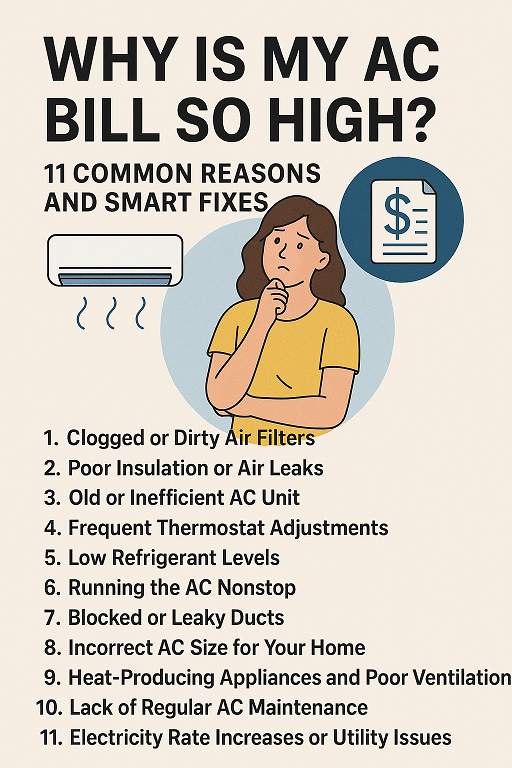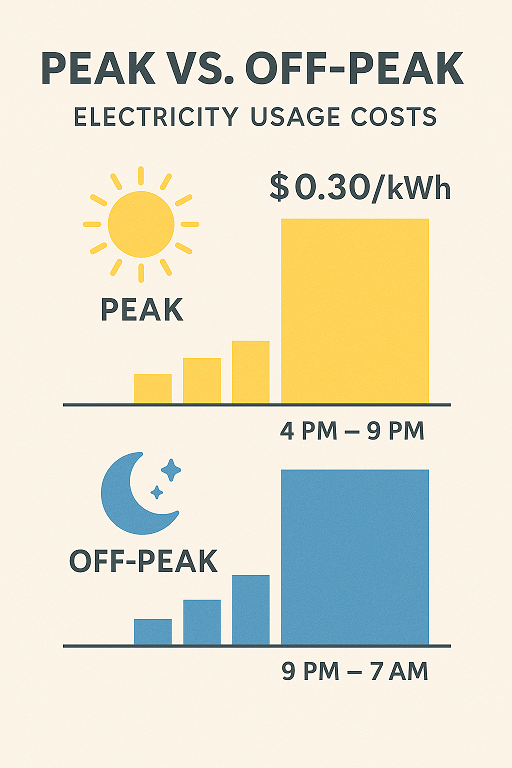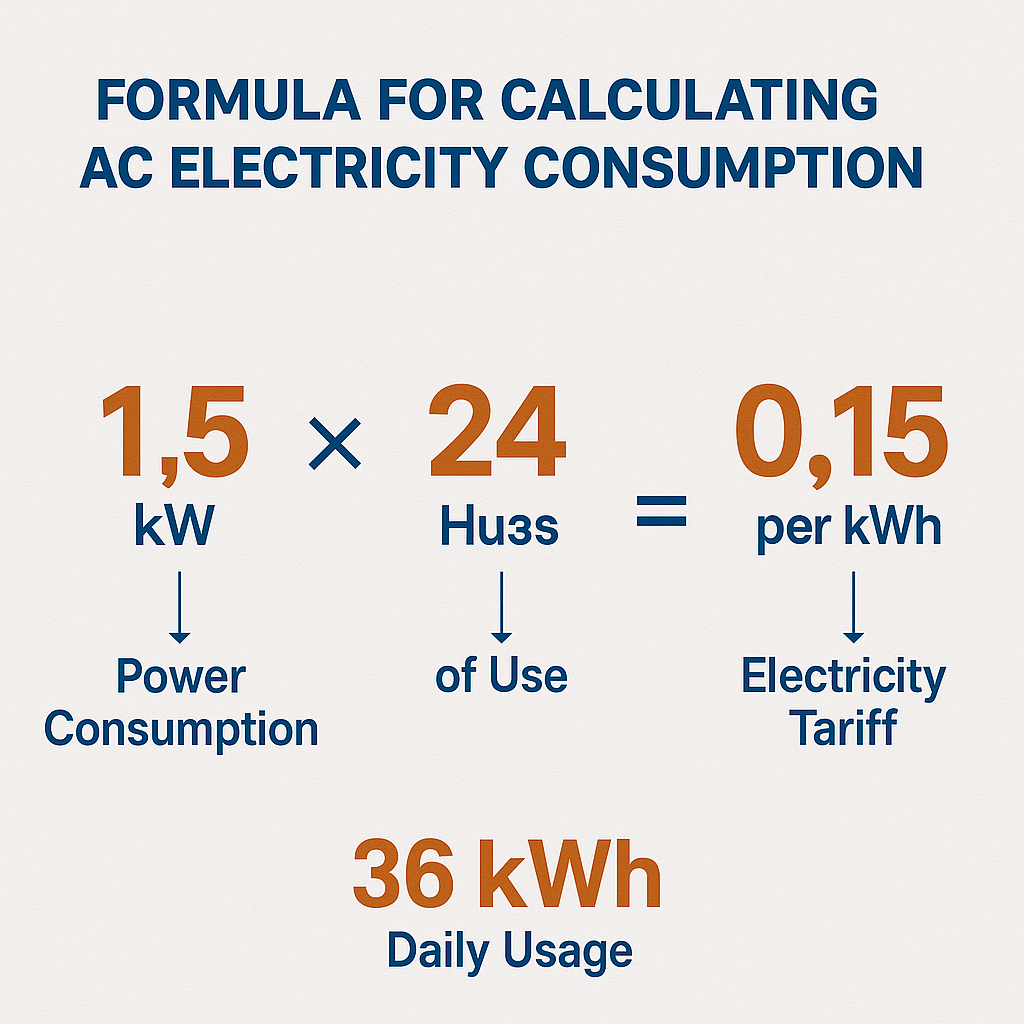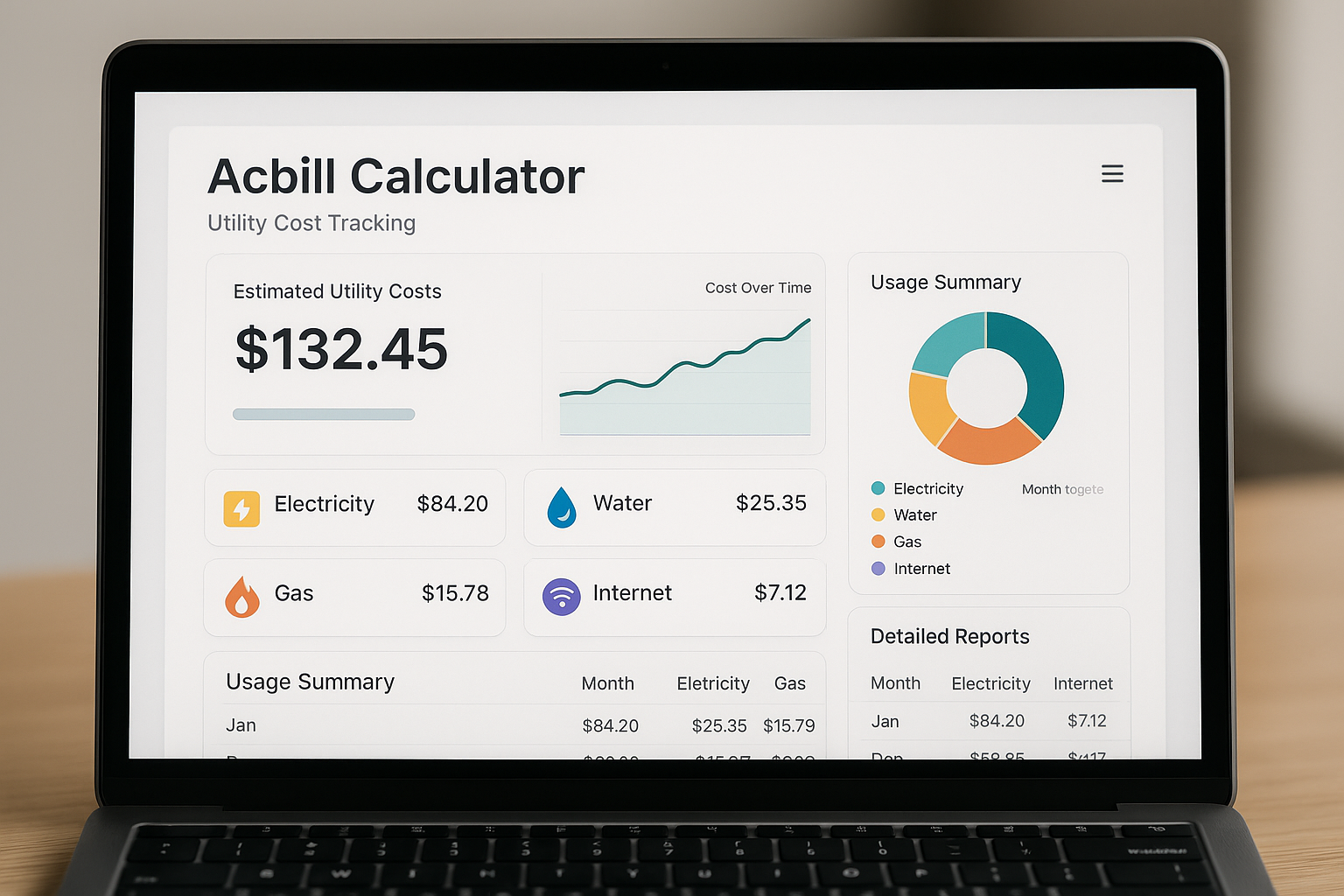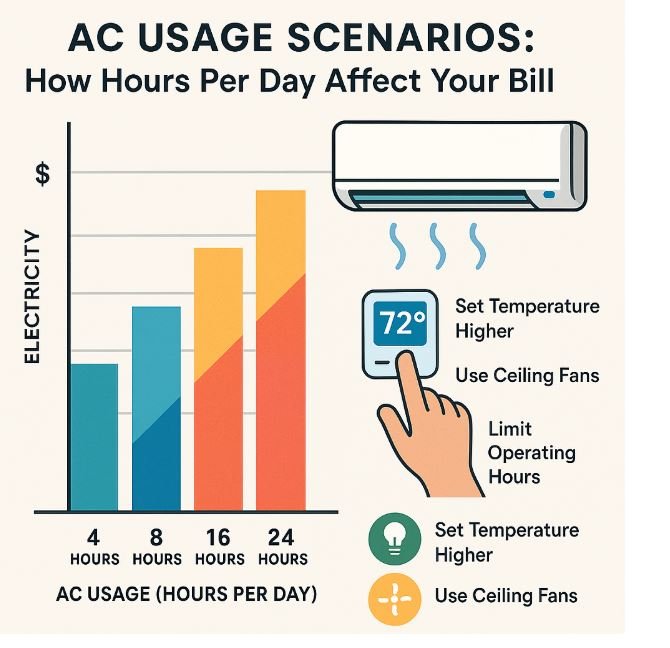
AC Usage Scenarios: How Hours Per Day Affect Your Bill
AC Usage Scenarios: How Hours Per Day Affect Your Bill
Introduction: Why AC Usage Hours Matter
One of your biggest electricity bills is your air conditioning costs, especially in hot weather. However, how much you spend is directly related to how many hours your AC runs each day - and knowing this relationship can save you money without compromising comfort. This article will examine different scenarios of AC use for 4 hours, 8 hours, 16 hours and more, and then explain how to use an AC usage hours calculator and calculate how much it will cost me each month.
Understanding AC Energy Consumption Basics
How ACs Consume Power (kWh Explained)
How much energy your AC uses is measured in kilowatt-hours (kWh). For example, a 1.5 ton split AC uses about 1.5 kWh/hour. Now multiply this by the number of hours you use it, and you will have your daily kWh.
Factors That Influence Energy Usage
- AC Size (Tonnage) - Larger units are Power-hungry.
- Star Rating / Efficiency – 5 star AC consume lesser energy than a 2 star AC.
- Outdoor Temperature – When days are hotter ACs run for longer.
- Thermostat Settings –Running your AC at 24-26 °C saves tons more diskspace than business 18 °C.
AC Usage Scenarios and Cost Implications
Scenario 1: Running AC 4 Hours Per Day
This is typical of nighttime only users. An air conditioner of 1.5 tons and 4-hour/day usage will consume about 180 kw/hr/month costing about 22-30 dollars (depending again on your local energy rates).
Scenario 2: Running AC 8 Hours Per Day
At 8 hours/day the same AC would bill out to 360 kWh/month, almost double the bill. This fits well for work-at-home users that stay it on the day job.
Scenario 3: Running AC 16 Hours Per Day
Usage above 720 kWh/month begins to make a significant amount on the AC bill at this level of efficiency.
Scenario 4: 24/7 Continuous Operation
Keeping your AC on all the time can consume around 1000 kWh of electricity per month, which triples your monthly electricity bill compared to average usage. This is a common occurrence where people live in extremely hot regions but it can be reduced by using a smart thermostat.
Vacation Mode: How to Save When You’re Away
In case you are going on a vacation longer than a few days, set your AC on vacation mode or shut it down entirely. Smart ACs also leave sort of cooling to save furniture and electronic devices,reduce energy consumption by 70 - 90%.
Lifestyle Mapping: Tailoring AC Use to Your Needs
Work-from-Home Lifestyle
You'll want cooling all day long—smart thermostats and zoning system control stay cool without costing you the farm.
Nighttime-Only Users
Individuals who are focused on running AC when they are sleeping should have bills that are manageable by restricting the use to 4-6 hours in order to have a comfortable sleep.
Large Families vs. Single Occupants
More substantial households tend to have so much to run multiple Air Conditioning. Buying inverter acs also helps in saving the cost in these cases.
Using an AC Usage Hours Calculator Effectively
An AC usage hour calculator allows you to enter the watts of your AC, the hours used, and the cost of your electricity tariff and instantly get an estimate of your monthly bill. This tool can be great when planning a budget and comparing usage scenarios.
👉 Example: Check out this free calculator to estimate your costs.
Cost-Saving Strategies for Smart AC Usage
Programmable Thermostats
Use timers to turn off your AC after some few hours after going to sleep.
Energy-Efficient Air-Conditioners Models
Long run savings can be done by upgrading to inverter type ACs or higher star rated models.
Additional Cooling Solutions
Ceiling fans, blackout curtains and insulation can cut down behind your AC’s back.
Environmental Impact of AC Usage Patterns
Using excess AC will increase electricity consumption and consequently carbon emissions. Improved usage patterns will not only save you some money but will also be less costly environmentally.
FAQs on AC Usage Scenarios
Q1. How expensive is it to run an AC 8 hours a day?
Ans: 1.5 ton, AC will cost about $40-60/month at 8 hours/day, depending upon the electricity rates.
Q2. Is it more economical to have the AC on continuously or or turn it on and off?
Ans: It is less expensive to operate it when needed. Install a thermostat as opposed to keeping one on all the time.
Q3. Does vacation mode actually save power?
Ans: Yes. Vacation mode lowers power usage by as much as 80 percent.
Q4. Can fans substitute AC in summer?
Ans: Fans only recirculate air, and they do not cool it. They are optimal when used with AC to minimize the run-time.
Q5. Which is the best AC temperature that saves?
Ans: The most comfortable and efficient temperature setting of your AC is 24-26 o C.
Q6. What are the ways in which inverter ACs operate in conserving energy?
Ans: The speed of the compressor used in Inverter ACs can be lowered, minimising power use by 30 50%.
Conclusion: Smart Cooling, Smarter Bills
The first step to reducing your electricity costs is to know your AC usage scenario. By evaluating 4-hour, 8-hour, 16-hour and 24-hour usage rates and tools like AC usage hours calculator, you will be able to make informed decisions. A combination of smart thermostats and energy-efficient products, as well as adjustments based on lifestyle, will help you enjoy comfort without going over budget.
